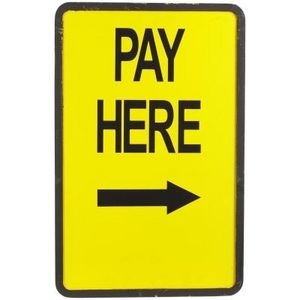
Approximately 4am on Sunday morning, I had an epiphany. I realized what the fundamental difference is between the positions of the NHLPA and the NHL. Please note that, in order to achieve this epiphany, I consumed large amounts of sugar and Red Bull in a desperate attempt to cling to consciousness while stumbling my way through a night shift. Now that your expectations have been sufficiently managed, here is my thought: the owners and the players have different ideas of what customers are paying for. Similar, yes, but subtly different.
Think of a Hollywood movie. The amount of time and effort that goes into any motion picture is incredible. Casting, location scouting, costume design, post-production. All things that the average moviegoer doesn’t notice unless those aspects of the film are either really, really good, or really, really bad. Things that do matter to the average patron include the acting (or the actors), the special effects and the franchise. You can make a really shitty movie, but if you put Harrison Ford and Shia LaBoeuf in it and stamp Indiana Jones on the marquee, people are going to go watch the thing. By comparison, you can make a beautiful movie like Beasts of the Southern Wild, but nobody’s going to see it because nobody’s ever heard of the movie or the cast. (Case in point: I’ve not seen it yet either — I’m basing this comment on word of mouth alone.) Even with all the attention Slumdog Millionaire got with its Oscar & Golden Globe wins, it didn’t earn a fraction of the money any random iteration of The Fast & the Furious did.
The owners are selling movies. Those 41 home games a year and television rights to 82 games a year? Movies.
In the owners’ eyes, the fans are paying for the entire experience of a hockey game. Sure, good actors help, but you still need to make a good movie. Without the DJ, and the atmosphere in the building, and the awful-yet-oh-so-good concession food, the experience is incomplete. Even if you don’t have the hockey player equivalent of an A-list movie star, you can still make an entertaining hockey game. The problem is, the stands will be empty but for 500 purists because the casual fan wants to see Sidney Crosby.
The players are the movie stars, and they’re selling themselves.
Put the Penguins and the Capitals in a no-frills arena for an NHL regular season game, and you’re still going to sell the place out. It doesn’t matter if you can’t buy a hot dog, you still get to see Sidney Crosby. It doesn’t matter if there’s no music, you still get to see Alex Ovechkin, and there are plenty of more interesting places to have terrible top 40 blasted at you. You might not get the full experience of a hockey game, but you get the movie stars, the special effects and the NHL brand.
These different paradigms make all the difference. If the focus is on the movie, then the profits need to go primarily to the movie maker, and the needs of the actors are secondary. The metaphor breaks down a little in that loads of cinephiles follow directors (Woody Allen, David Fincher, et al) and even studios (Dreamworks & Pixar to name a couple) — you don’t tend to see that in sports. Not a single Detroit Red Wings fan enters Joe Louis Arena thinking, “Gee, I’m excited to see Mike Ilitch’s team tonight.” The focus in the movie that is professional hockey is solely on the stars. Hollywood has long manufactured their own stars, but in hockey the owners don’t make money unless the best players in the world are plying their trade in the NHL.
The only leverage the owners have is that they are already wealthy, while the people they’re negotiating with are in the process of becoming wealthy. The players are hampered by the fact that they have a short window in which to accomplish their goal. (Last I checked, the average NHL career is around 5.5 years.)
Changing the minds of either of these groups will not be easy. We can only hope the owners realize where public opinion lies before they do further damage to the league, and the game of hockey.

